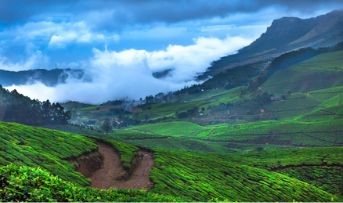General Insurance Blogs, Articles & Updates by - Magma Insurance
Have us call you
- RENEW YOUR POLICY
- BUY NEW POLICY

Pedestrians beware! These tips can prevent you from getting into accidents
Pedestrians have the right to cross the street without being restricted. Unfortunately, the road can throw various challenges knowing the road conditions and the reckless habits of drivers. It is imperative to prevent pedestrian accidents because they can cause serious injuries or even death. We'll review some essential advice in this blog to keep you safe on the road and prevent pedestrian accidents.
So, pedestrians, these tips can prevent you from getting into accidents. Let's get started.
1. Should use pedestrian crossings strictly:
There are places on the road called pedestrian crossings where people can safely cross. Using these crossings is crucial since they are frequently marked with zebra stripes, which make it obvious to drivers that pedestrians have the right of way. Before going into the crosswalk and crossing the road, look on both sides. Even though you have the privilege, it's best to be cautious and hold back until approaching cars have stopped before crossing the street.
2. You must be visible from a distance:
When it comes to the safety of pedestrians, visibility is crucial. When it's dark or there is little light, wearing bright or reflective clothing can assist vehicles in seeing you from a distance. Carry a flashlight or use the flashlight function on your smartphone to boost your visibility while strolling in an area without streetlights. You can lessen the likelihood that a car won't see you and could cause an accident by being visible.
3. Eliminate every distraction:
It's crucial to remain vigilant and aware of your surroundings when walking. Steer clear of walking while texting, listening to music, or using your phone. These pursuits may divert your focus, making it difficult to see possible dangers like approaching traffic, potholes, or uneven surfaces. Step to the side of the road if you need to make a call or send a text to avoid obstructing other pedestrians or creating a safety concern.
4. Keep track of turning vehicles:
Pedestrians can be seriously endangered by turning vehicles, particularly if the driver doesn't see them. Always watch for cars pulling into driveways or crossroads, and make eye contact with the driver before crossing in front of them. Also, it's a good idea to listen for any engine noises or vehicle signs, such as horns or reverse alarms.
5. Be watchful about the traffic:
Always stroll traffic-facing if you're on the road without a sidewalk. This allows you to see approaching cars and, if necessary, move out of the way. When you walk with your back to the road, it can be more difficult for vehicles to notice you, which raises the possibility of an accident.
6. Observe traffic signs and abide by the rules:
The purpose of traffic signals is to control the movement of automobiles and pedestrians on the road. When crossing the street, always heed the traffic signals, especially pedestrian signals. Even if there are no oncoming vehicles, avoid attempting to cross the road when the pedestrian light is red. You risk putting yourself in danger by disobeying the signal since other drivers may be turning or speeding.
7. While around large vehicles, exercise caution:
Oversized vehicles with poor visibility, such as trucks, buses, and trailers, make it more difficult for drivers to see pedestrians. Always use caution when navigating these vehicles and avoid wandering in or near their blind areas. Make eye contact with a bus or truck driver before crossing in front of them if you're walking close to one.
8. Keep an eye on the weather:
Rain, snow, or fog can impair visibility and make it riskier for pedestrians to cross the street. It's crucial to take extra precautions during bad weather, such as wearing reflective clothes or an umbrella to improve visibility.
In conclusion, the safety of pedestrians should never be taken for granted. Pedestrians can significantly lower their risk of getting injured in an accident by heeding the straightforward advice provided in this blog. And for unprecedented circumstances, you must purchase the best personal accident insurance India to safeguard yourself and your family against any life-threatening mishaps.
Click HERE to learn the benefits of purchasing personal accident insurance India.
Disclaimer: The information provided above is for illustrative purposes only. To get more details, please refer to policy wordings and prospectus before purchasing a policy.

Are you a student going to study abroad? Here are a few essential things you must know
Over time, the world has come together to become a global village. Travelling to foreign countries, experiencing their culture, and taking advantage of the best offerings of other nations is more accessible now than it has ever been before, making education and working abroad favourable and highly sought-after opportunities. Many Indian students leave the country to study at international universities and improve their career prospects.
However, changing one's environment and relocating to a new place is a challenging task that requires extensive planning and budgeting. You should also consider purchasing general insurance plans covering yourself against any mishaps that may occur abroad.
With proper research and following the below-stated tips, you can easily plan for relocation to a foreign university!
1. Prep your documents:
Studying abroad requires significant planning, starting with where you wish to learn - the country, the university, and the course. Based on this choice, you will need a valid passport, visa, I-20, Government-issued identity proof, authenticated mark sheets, and more. Initiate the time-intensive process well before your expected departure date from your home country.
2. Make your bookings in advance:
Flight tickets are invariably expensive unless the airlines offer tremendous seasonal discounts. Once your application to your preferred institute and visa is accepted, it is ideal for researching and booking your travel tickets to avail flexible and inexpensive rates about three months in advance. Ensure that you choose an arrival date a few days before the expected start date of your course to allow yourself time to acclimatise to your new surroundings. Similarly, book on or off-campus accommodation in advance to save on inflated prices.
3. Build a network of local students:
Before embarking on your educational journey abroad, look for fellow country students who have been admitted into nearby institutes or courses in the same institute as you. Your institute's office of international affairs can also help you understand the general experience of living in the country and what to expect so that you can plan better. It also helps establish a friendly community you can rely on when you feel homesick.
4. Research on the country's culture:
Arriving in the country without any prior research about its customs, culture, and community puts you on the spot without knowing what to expect and how to deal with situations. While making connections with fellow students can help, do your primary research on the country, its traditions, beliefs, language, cuisine, and attractions to prepare yourself for your upcoming journey.
5. Purchase relevant insurance covers:
While this may seem unrelated while preparing for your studies abroad, it is necessary to remember that most foreign countries have considerably high living costs—adding medical and other expenses that you may incur due to the lack of proper financial planning results in excessive expenditure. Therefore, purchasing travel, health, and relevant general insurance plans is ideal for protecting yourself in unfamiliar situations.
6. Pack appropriately:
Being away from home for extended periods requires adequate packing. However, excessive baggage only adds to your troubles. A quick online search will inform you about the weather to expect, according to which you can pack weather-appropriate garments and essentials. While it may be tempting to overpack, plan objectively to pack the necessities and rely on the local markets for other requirements.
7. Prepare to adapt:
New surroundings always present challenges that you must overcome with time and experience. Since you are stepping into a new place, begin making the preparatory changes required to adjust. Mentally making currency exchange conversions, setting up an international mobile plan, and acquainting yourself with emergency numbers are basic tasks you should fulfil in advance to take on immersive experiences in foreign settings confidently.
New changes bring along thrilling opportunities. Once selected for an overseas university, focus on preparing the essentials like visa application, passport, general insurance plans, etc. Instead of second-guessing your decisions, prepare yourself to discover unique learning experiences overseas.
Click HERE to buy the best general insurance plans before you go abroad for your higher studies.
Disclaimer: The information provided above is for illustrative purposes only. To get more details, please refer to policy wordings and prospectus before purchasing a policy.

As your liabilities rise, so should your insurance cover. Here's all you need to know
In a world of uncertainties, a financial product like insurance is no short of an overlooked superhero that always comes in clutch and saves the day. Be it your home, vehicle, health, or business, general insurance India protects various assets essential for your life's unaffected functioning.
While the penetration rate of general insurance India only slightly lags behind the global average, it is a fact that can only be celebrated in isolation. Policyholders also need to periodically assess their situation to determine whether their policy provides adequate coverage in terms of insured sum and coverage benefits instead of sticking to the same policy to skimp on premium.
It is necessary to upgrade your policy as your financial situation changes, which is a game of balancing your assets and liabilities. Liabilities refer to events that certainly result in monetary outflow in the present or the future.
If you notice an increase in your liabilities or anticipate the same in the upcoming future, here’s why you should consider increasing your insurance coverage.
1. Inflation:
The cost of living only increases by the day. The official figures released by authorities are usually conservative. Still, upon careful research, one can identify that understated inflation exists in every industry and is only set to grow over time. While some rising costs are necessary to fuel economic growth, consumers ultimately feel the pinch on their finances.
Any assets you may have purchased are bound to depreciate over time and lose value, while any loans compound into more significant outflows, resulting in an imbalance of finances. Consider availing of general insurance India plans to protect your assets and yourself from defaulting on existing liabilities.
2. Diminishing earning power:
Over time, an individual's earning capacity inevitably stagnates, if not reduces. While strategic investments may compound your wealth over time, the lack of a continuous flow of income may put you in a challenging financial position. As liabilities continue to increase, a simultaneous addition in terms of revenue is essential.
3. Dependents’ financial stability:
Like numerous other vital issues, your primary well-being directly impacts that of your dependents, especially if you're the sole breadwinner of your family. Whether uncertainties come your way in the form of accidents, health issues, disabilities, or unforeseen calamities, it is always best to increase your policy’s insured sum after a careful risk assessment. Always take stock of such a situation and purchase general insurance India to protect your assets and finances. This way, you can minimise the financial impact of the event on your dependents.
4. Increased number of dependents:
If the number of dependents on you has grown recently, it is time to evaluate your policies’ insured sums. Irrespective of the kind of insurance, except those relating to tangible assets, ensure that you carefully assess various plans under general insurance India. This is essential to identify the best policy that provides adequate coverage and perks for your extended family.
5. Increased personal liabilities:
If you are taking more significant debt to fulfil any financial goals, consider increasing the sum offered by the insurer on the related asset. This may be in the form of education loan insurance, home or motor vehicle loan insurance, etc. It also applies to health insurance by upgrading your policy to a more comprehensive policy after accurate medical diagnosis and detection of significant health risks.
Through careful assessment of the situation and risk analysis, potential policyholders can purchase the best plans under general insurance India and derive the most significant value for their investment, whether their liabilities stay stable, diminish or increase!
Click HERE to buy the best general insurance India policy.
Disclaimer: The information provided above is for illustrative purposes only. To get more details, please refer to policy wordings and prospectus before purchasing a policy.

Check out these picture-perfect eco-tourism destinations
Travelling is one of the best ways to escape life's mundane realities and find peace in a distant land. It is excellent for your physical health and helps detoxify your mind. It also allows you to spend quality time with your loved ones. A vacation should be undertaken at least once a year to provide much-needed calm in the chaos and feel at ease with yourself.
In a country like India, there are various places that you can explore solo or with your partner or family members. They are diverse, serene, magnificent, and rare. There are a few enticing locations you will not find anywhere in the world. Eco-tourism is one such unique activity that has gained high momentum post Covid-19. India has been a hub for eco-tourism for the past few decades now. There's something for all, from the scintillating Himalayas to the backwaters in Kerala.
We have you covered if you're looking for exciting eco-tourism destinations for a refreshing vacation! However, remember to purchase your general insurance policy to protect yourself against any contingencies before embarking on your journey.
Here's our curated list of the best eco-tourism destinations.
1. Kerala backwaters:
Take a Kettuvallam, the local term for a houseboat, and embark on a journey of a lifetime among lush green surroundings. The backwaters of Kerala have their charm and character. The green cover all around soothes your eyes and soul. You can also stay overnight on these boats and enjoy a perfect water vacation amidst the natural surroundings of green trees, picturesque views, and gentle kisses of fresh air.
2. The green valley of Munnar:
This list is incomplete without the inclusion of Munnar in Kerala. Present at an elevation of 1,700 metres, Munnar is lined by lush green tea plantations and varied flora on all sides. The vast green stretches of land are a sight to behold. It is also home to various rare species of flora and fauna that are on the verge of extinction. You will only see vast stretches of cascading greenlands everywhere you look with the blue hues of the skies.
3. Galgibaga Beach, Goa:
Located in Goa, Galgibaga Beach is famous for the turtle nesting that takes place every year. It is one of the underrated beaches in Goa that is rarely visited by tourists all year round. This allows you to explore the golden white sands lined with palm trees away from the chaos of popular tourist destinations. It is serene, peaceful, and perfect for a vacation. You can also spot Olive Ridley Turtles during the winter here!
4. Kaziranga National Park, Assam:
Spread over a wide area of 430 square kilometres; the Kaziranga National Park is a world heritage site. It is home to many rare species of animals, birds, and insects. You can explore the wilderness by taking a jungle safari. It is a prominent place to spot species like Hornbills, vultures, hispid hares, jackals, and more.
5. Sundarbans National Park, West Bengal:
Sprawling over 1,330 square kilometres, the Sundarbans are the largest mangrove forest in the world. The Royal Bengal Tigers live here in utmost peace. You can catch glimpses of their natural habitat by visiting here. You can also witness some geographical marvels here and indulge in a conversation with the local and traditional honey collectors of the Sundarbans.
Eco-tourism is slowly becoming a must-activity for mainstream travellers in recent times. More and more people are visiting these tourist places for leisure and staying close to nature. However, we recommend purchasing adequate general insurance to protect yourself from mishaps before setting on your journey in the wilderness or travelling to off-beat places.
Click HERE to buy reliable general insurance.
Disclaimer: The information provided above is for illustrative purposes only. To get more details, please refer to policy wordings and prospectus before purchasing a policy.

